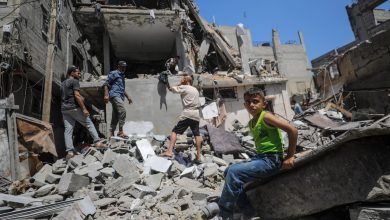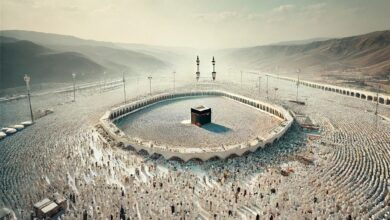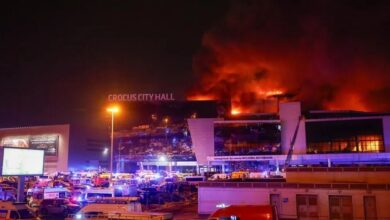At the beginning of the Muslim holiday of Eid al-Fitr on Friday, gunfire erupted throughout residential areas of Sudan’s capital Khartoum as the army first deployed on foot in its almost week-long conflict with a paramilitary group.
Witnesses said that soldiers and armed members of the paramilitary Rapid Support Forces (RSF) exchanged gunfire throughout the city’s north, west, and centre, including during the call for early Eid prayers.
The ongoing violence has claimed hundreds of lives. Foreign countries, notably the United States, have been unable to remove their nationals from Sudan in the absence of a ceasefire.
International efforts to mediate a short-term ceasefire for the three-day holiday and let people go to safety have so far been unsuccessful.
As opposed to sticking mostly to airstrikes around the capital, the army instead looked to launch a new phase of the conflict on the ground, engaging the RSF in civilian districts with more intense skirmishes in downtown Khartoum.
General Abdel Fattah al-Burhan, the commander of the army, declared on Thursday that he saw “no other option but the military solution” to the power conflict with the paramilitary group that broke out in bloodshed last weekend.
The confrontation between army chief Burhan and RSF head General Mohamed Hamdan Dagalo, commonly known as Hemedti, two former allies of the current military junta, runs the risk of involving Sudan’s neighbours and might fuel regional rivalry between Russia and the United States.
One of Africa’s largest metropolitan centres, Khartoum and its Nile sister cities could be heard hearing the thud of heavy weapons. On one street, soldiers carrying semi-automatic weapons were met with applause, according to video published by the military on Friday.
Reuters was able to confirm the video’s shooting date but not its exact location, which was in the city’s north.
According to the World Health Organisation, the fighting has already resulted in at least 413 fatalities and hundreds of injuries. Hospitals have come under attack, and up to 20,000 people have fled into the nearby Chad.
On Friday, tens of thousands more Sudanese left Khartoum, some of them heading north to the River Nile state or south to Al Gezira state.
A quarter of Sudanese people were already suffering from severe hunger before the conflict, with children being particularly vulnerable. Three of its employees were slain on Saturday, prompting the UN World Food Programme to cease one of its major operations in Sudan.
Conflict over a globally supported proposal to establish a new civilian administration two years after a military coup and four years after the overthrow of tyrant Omar al-Bashir by widespread demonstrations set off the bloodshed.
Both sides charge the other with obstructing the change.
Despite a flurry of phone conversations from the Turkish president, the U.S. president, Qatar’s and Saudi Arabia’s foreign ministers, and other international leaders to Burhan on Thursday, the violence on Friday hampered efforts by UN Secretary General Antonio Guterres to secure a ceasefire.
The RSF criticised the military for allegedly launching more assaults.
The RSF stated early on Friday that “at this time, when citizens are preparing to celebrate the first day of Eid al-Fitr, the neighbourhoods of Khartoum are waking up to the bombings of aircrafts and heavy artillery in a sweeping attack that is directly targeting residential neighbourhoods.”
Beyond the capital, the combat is taking place in western Darfur, where the two parties signed a partial peace agreement in 2020 to end a protracted conflict that resulted in Bashir being accused of war crimes internationally.
A maternity hospital in El Fasher, North Darfur, that had been converted to handle combat injuries was overburdened and quickly running out of resources, according to Cyrus Paye, coordinator for relief organisation MSF that supports the institution. The city’s other hospitals were all shut down.
44 people have died as a result of their wounds, and the majority of the 279 wounded patients the hospital has received since Saturday were civilians hit by stray gunfire, many of them youngsters.
El-Obeid city, which is located west of Khartoum, suffered at least 26 fatalities and 33 injuries on Thursday, according to another set of medics. Witnesses there reported fighting and extensive looting.
After virtually meeting with the leaders of the African Union, Arab League, and other organisations on Thursday, Guterres told reporters that besieged people should be allowed to access food, medical care, and other supplies.
Burhan told Al Jazeera that he would welcome a truce provided that it enabled people to walk around freely, something that the RSF, in his opinion, had hindered.






